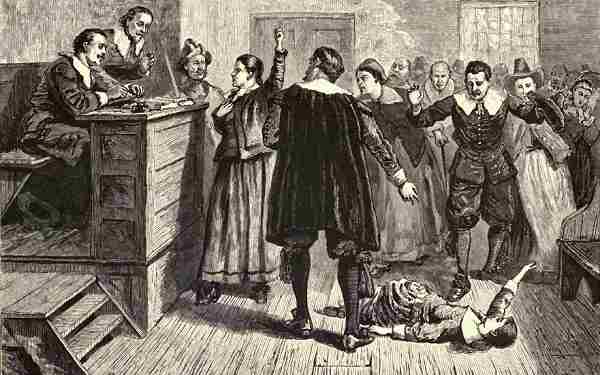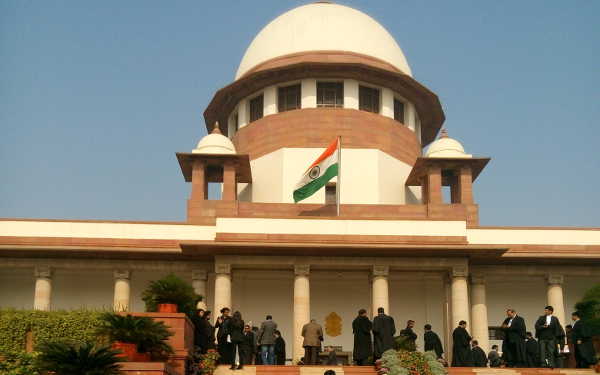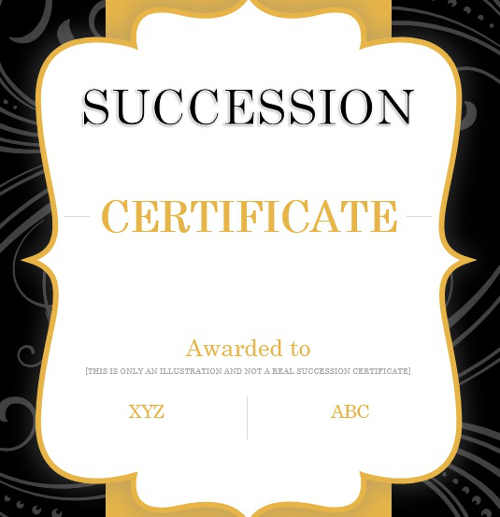The Supreme Court comprising a bench of Hon’ble Dr. Justice D. Y. Chandrachud and Hon’ble Mr. Justice A. S. Bopanna in the matter of The Employees’ State Insurance Corporation v. Union of India & Ors., Civil Appeal No. 152 of 2022 has recently decided whether the Dynamic Assured Career Progression Scheme (hereinafter referred to as the DACP Scheme) will be applicable to the Employees of the Employees’ State Insurance Corporation, which is a statutory body set up under the Employees State Insurance Act, 1948. The Supreme Court further answered the question whether the particulars of an advertisement for vacancies will have primacy over the service regulations / rules framed by the Department.
In the captioned matter, certain persons (Respondents before Supreme Court) had joined the Employees’ State Insurance Corporation (ESIC) as Assistant Professors at the ESIC Model Hospital, Rajajinagar, Bengaluru between 2012 to 2014. At the time of joining into service, the DACP Scheme issued by the Central Government in 2008 was applicable. According to the DACP Scheme, the Assistant Professor was to be promoted to the post of an Associate Professor upon completion of two years of service. However, subsequently the Employees’ State Insurance Corporation (Medical Teaching Faculty Posts) Recruitment Regulations, 2015 came into effect on 05.07.2015.
As per the ESIC Recruitment Regulations, 2015, a minimum of five years of qualifying service as Assistant Professors were required for promotion to the post of Associate Professors. Hence, the Respondents / Assistant Professors filed an OA before the Central Administrative Tribunal, Bengaluru. The CAT deciding in favour of the Assistant Professors held that the ESIC Recruitment Regulations were not relevant for the adjudication of the matter and direct the ESIC to consider the promotion of the Assistant Professors under the DACP Scheme.
Subsequently, the ESIC preferred a Writ Petition before the High Court of Karnataka which also dismissed the Appeal which held that since the Assistant Professors were recruited before the enactment / enforcement of the ESIC Recruitment Regulations, 2015, they would get the benefit of the DACP and also that the DACP has statutory effect under the Employees State Insurance Act and the said ESIC Recruitment Rules have been enacted without the approval of the Central Government. Further, the decision was rendered in favour of the Assistant Professors as the Advocate for the ESIC had conceded that the ESIC would implement the DACP and that the ESIC Recruitment Regulations, 2015 do not apply.
Hence, in an Appeal before the Supreme Court filed by the Employees State Insurance Corporation, the following were the main points to be decided by the Hon’ble Supreme Court:
- Will the Assistant Professors will be governed by the DACP or the ESIC Recruitment Regulations, 2015 : The Hon’ble Supreme Court held that the Assistant Professors will be governed by the ESIC Recruitment Regulations, 2015 instead of them being governed by the DACP scheme of 2008 of the Central Government.
- Whether the Advertisement for recruitment of the said Assistant Professors (that specified the applicability of DACP Scheme) will have primacy or will the ESIC Recruitment Regulations, 2015 have primacy : The Hon’ble Supreme Court decided this point in favor of the Appellant ESIC and held that the Advertisements will not have primacy over what the service regulations, etc.
- Will it be an estoppel if the Advocate for the Appellant Corporation had conceded a point in the High Court / Lower Courts : The Hon’ble Supreme Court held that there will be no estoppel if the advocate had conceded a point of law.
The abovementioned main points are decided and adjudicated by the Supreme Court as follows:
- Will the Assistant Professors will be governed by the DACP scheme or the ESIC Recruitment Regulations, 2015:
The main contention of the Appellant (ESIC) was that the ESIC Recruitment Regulations, 2015 were enacted under Section 17(2) of the ESI Act which empowers the the ESIC to depart from the conditions of service that are applicable to employees of the Central Government, subject to the prior approval from the Central Government. Further, Section 97(3) of Act confers power to the ESIC to frame its own regulations which are deemed to have the same effect as statutory provisions. The Appellant contended that the Office Memorandum dated 29.10.2008 that implemented the DACP Scheme is applicable to the employees of the Central Government but not to the Appellant corporation which is a statutory body. The ESIC further submitted that the High Court erred in holding that the DACP will be applicable to the Assistant Professors / Respondents because the ESIC Recruitment Rules, 2008 were gazetted on 02.05.2009 which stipulated four years of qualifying service for promotion to the post of Associate Professor instead of the 2 years as was specified by the DACP.
The Assistant Professors contended that the ESIC Recruitment Rules, 2008 were issued without approval of the Central Government and that the Office Memorandum for the DACP Scheme extended the said Scheme to various sub-cadres of the Central Health Service, including the teaching cadre. Hence, under Section 17(2)(a) of the Employees State Insurance Act, the DACP will be binding.
The Hon’ble Supreme Court held that the ESI Recruitment Rules, 2015 will be applicable to the ESIC as the ESIC Recruitment Rules of 2015 had superseded the Rules of 2008 and it is a settled law that the regulations that are framed by statutory authorities have the force of an enacted law. For this, reliance was placed on the case of Sukhdev Singh v. Bhagatram Sardar Singh Raghuvanshi, (1975) 1 SCC 421 and Pepsu Road Transport Corporation, Patiala v. Mangal Singh and Ors., (2011) 11 SCC 702. In both of the abovementioned cases, the Supreme Court had earlier held that it is a well settled law that Regulations made under the staturoy powers are binding and effective as the enactment of the competent legislature.
Further, the Hon’ble Supreme Court while deciding whether the Office Memorandum of the Central Government of the DACP Scheme will have primacy over the ESIC Recruitment Regulations held that, “In the event of a conflict between an executive instruction, an office memorandum in this case, and statutory regulations – the latter will prevail.” The Supreme Court placed reliance on the judgment of the Constitution Bench in the case of Sant Ram Sharma v. State of Rajasthan, AIR 1967 SC 1910 whereby the Hon’ble Supreme Court observed:
“7. We proceed to consider the next contention of Mr N.C. Chatterjee that in the absence of any statutory rules governing promotions to selection grade posts the Government cannot issue administrative instructions and such administrative instructions cannot impose any restrictions not found in the Rules already framed. We are unable to accept this argument as correct. It is true that there is no specific provision in the Rules laying down the principle of promotion of junior or senior grade officers to selection grade posts. But that does not mean that till statutory rules are framed in this behalf the Government cannot issue administrative instructions regarding the principle to be followed in promotions of the officers concerned to selection grade posts. It is true that Government cannot amend or supersede statutory rules by administrative instructions, but if the rules are silent on any particular point Government can fill up the gaps and supplement the rules and issue instructions not inconsistent with the rules already framed.” (emphasis supplied)
The Supreme Court also placed reliance on a division bench judgment of the Supreme Court in the case of Union of India v. Ashok Kumar Agarwal, (2013) 16 SCC 147 whereby the Hon’ble Supreme Court observed that,
“59. The law laid down above has consistently been followed and it is a settled proposition of law that an authority cannot issue orders/office memorandum/executive instructions in contravention of the statutory rules. However, instructions can be issued only to supplement the statutory rules but not to supplant it. Such instructions should be subservient to the statutory provisions. (Vide Union of Indiav. Majji Jangamayya [(1977) 1 SCC 606 : 1977 SCC (L&S) 191] , P.D. Aggarwal v. State of U.P. [(1987) 3 SCC 622 : 1987 SCC (L&S) 310 : (1987) 4 ATC 272] , Paluru Ramkrishnaiah v. Union of India [(1989) 2 SCC 541 : 1989 SCC (L&S) 375 : (1989) 10 ATC 378 : AIR 1990 SC 166] , C. Rangaswamaiah v. Karnataka Lokayukta [(1998) 6 SCC 66 : 1998 SCC (L&S) 1448] and Joint Action Committee of Air Line Pilots’ Assn. of India v. DG of Civil Aviation [(2011) 5 SCC 435 : AIR 2011 SC 2220] .)”
The Assistant Professors further claimed that certain letters were written by the Appellant ESIC for implementation of the DACP scheme, however, the Supreme Court held that these letters would be similar to the Office Memorandum for DACP Scheme and it would not have the force of the law until they were enforced through an amendment to the recruitment regulations and placed reliance on a three judge bench of the Supreme Court in the case of Union of India v. Majji Jangamayya, (1977) 1 SCC 606.
Hence, on the basis of the abovementioned observations / discussions, the Hon’ble Supreme Court held that the DACP Scheme will not be applicable to the Assistant Professors for promotion as the ESIC Recruitment Rules, 2008 and ESIC Recruitment Rules, 2015 both having statutory effect overrides the Office Memorandum dated 29.10.2008 that had implemented the DACP Scheme.
- Whether the Advertisement for recruitment of the said Assistant Professors (that specified the applicability of DACP Scheme) will have primacy or will the ESIC Recruitment Regulations, 2015 have primacy:
The Assistant Professors were claiming that since the advertisements referred to the applicability of the DACP scheme, they had left their earlier jobs and joined here to get the benefit of the said scheme and as such they should be given the benefit of the DACP Scheme.
However, the Supreme Court held that, “However, it is a settled principle of service jurisprudence that in the event of a conflict between a statement in an advertisement and service regulations, the latter shall prevail. In Malik Mazhar Sultan v. U. P. Public Service Commission, (2006) 9 SCC 507, a two judge bench of this Court clarified that an erroneous advertisement would not create a right in favour of applicants who act on such representation.”
The Supreme Court further referred to the case of Ashish Kumar v. State of Uttar Pradesh, (2018) 3 SCC 55 wherein the Supreme Court declined to give precedence to the erroneous qualifications prescribed in the advertisement against the relevant recruitment rules and also placed reliance on the case of Rajasthan Public Service Commission v. Chanan Ram, (1998) 4 SCC 202 wherein the Supreme Court held that an earlier advertisement becomes infructuous after amendment to the service rules.
- Will it be an estoppel if the Advocate for the Appellant Corporation had conceded a point in the High Court / Lower Courts:
The Hon’ble Supreme Court held that there will be no estoppel if the advocate had conceded a point and observed that,
“While this Court expresses its disapproval at the lack of proper instructions being tendered to the Counsel of the appellant, there can be no estoppel against a statute or regulations having a statutory effect. In Nedunuri Kameswaramma v. Sampati Subba Rao, AIR 1963 SC 884 a three-judge Bench of this Court decided a central point of the dispute in favour of a party, irrespective of the concession of its Counsel since it was on a point of law. Justice M Hidayatullah (as the learned Chief Justice then was), speaking on behalf of the Court observed:
“20. From the above analysis of the documents, it is quite clear that the documents on the side of the appellant established that this was a Karnikam service inam, and the action of the Zamindar in resuming it as such, which again has a presumption of correctness attaching to it, clearly established the appellant’s case. Much cannot be made of a concession by counsel that this was a Dharmilainam, in the trial court, because it was a concession on a point of law, and it was withdrawn. Indeed, the central point in the dispute was this, and the concession appears to us to be due to some mistake or possibly ignorance not binding on the client. We are thus of opinion that the decision of the two courts below which had concurrently held this to be jeroyti land after resumption of the Karnikam service inam, was correct in the circumstances of the case, and the High Court was not justified in reversing it.” (emphasis supplied)
The Supreme Court further relied upon the decision of a three judge bench in the case of Himalayan Coop. Group Housing Society v. Balwan Singh, (2015) 7 SCC 373, whereby the Supreme Court held that while generally admissions of fact by counsel are binding, neither the client nor the court is bound by the admissions as to matters of law or legal conclusions and also placed reliance on the case of Director of Elementary Education, Odisha v. Pramod Kumar Sahoo, (2019) 10 SCC 674 whereby the Supreme Court observed that a concession on a question of law concerning service rules would not bind the state for the reason that there cannot be any estoppel against law.
Accordingly, the Hon’ble Supreme Court, while deciding the instant case, observed and held as follows:
“26. The CAT and the High Court failed to notice the applicability of the ESIC Recruitment Regulations 2015 to the promotions of the Teaching Cadre in the appellant corporation. The ESIC Recruitment Regulations 2015 have precedence over the Office Memorandum dated 29 October 2008 which implemented the DACP Scheme in respect of officers of the Central Health Service under the Union Ministry of Health and Family Welfare. The concession by the Counsel of the appellant before the CAT does not stand in the way of the appellant supporting the correct position of law before this Court.
27. The contesting respondents did not challenge the ESIC Recruitment Regulations 2008 or the ESIC Recruitment Regulations 2015 before the CAT or the High Court. The argument on lack of prior approval as per Section 17(2) of the ESI Act is obviated by the preamble to the ESIC Recruitment Regulations 2015. The contesting respondents have only supported the applicability of the DACP Scheme to claim promotion as Associate Professor after two years of service. The advertisements for recruitment mentioning the DACP Scheme would have no effect since they were in contravention of the applicable recruitment regulations. Therefore, for the above reasons, we are of the view that the appeal should be allowed.
28. The appeal is accordingly allowed and the impugned judgement and order of the Division Bench of the Karnataka High Court dated 5 September 2019 is set aside. As a consequence, the revised seniority list of the Teaching Cadre at the appellant corporation should reflect the promotions of the contesting respondents in accordance with the ESIC Recruitment Regulations 2015 and not the DACP Scheme.”
Click here to read the judgment of the instant case titled The Employees’ State Insurance Corporation v. Union of India & Ors., Civil Appeal No. 152 of 2022 – https://main.sci.gov.in/supremecourt/2020/16825/16825_2020_34_1503_32837_Judgement_20-Jan-2022.pdf












